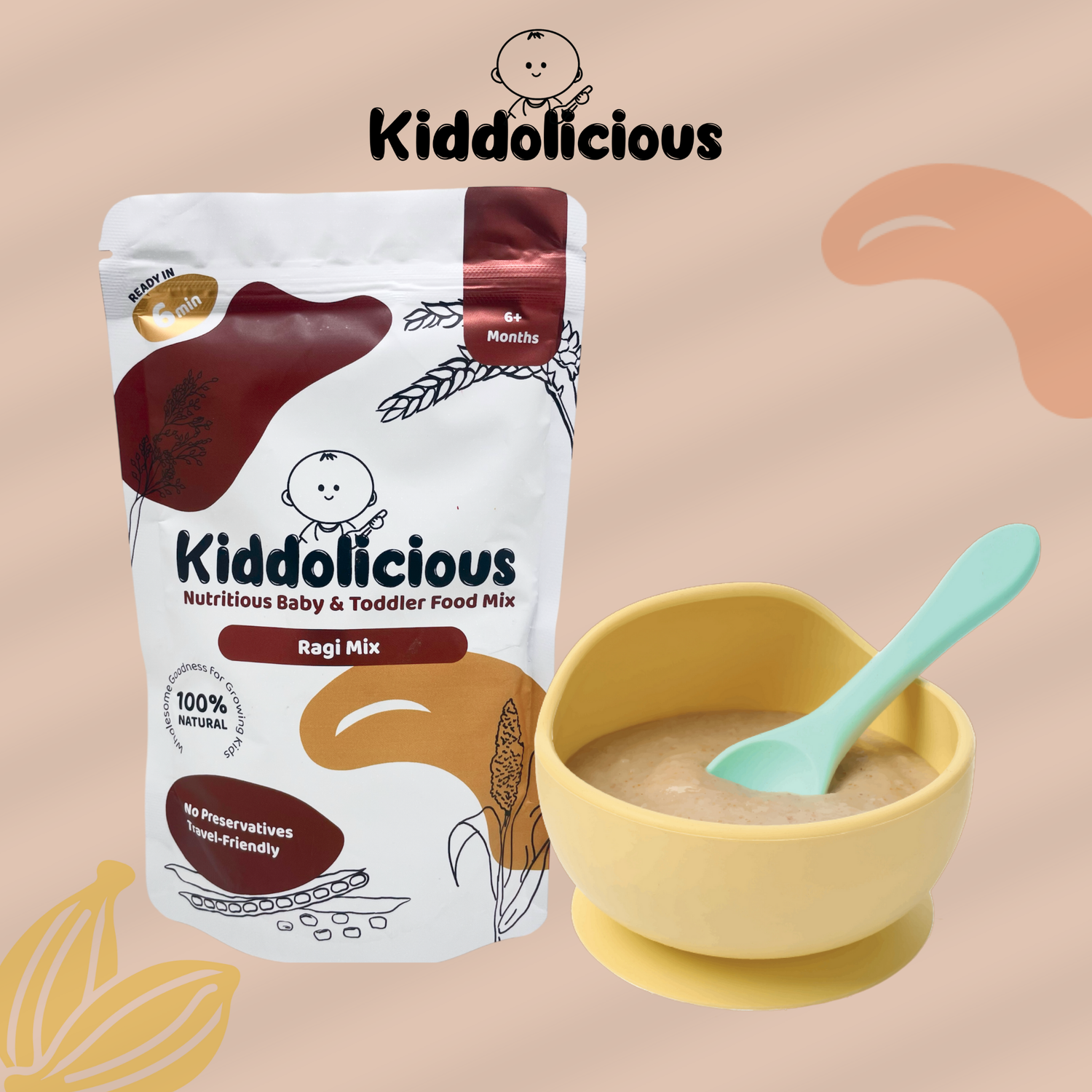
Top 10 First Solid Foods for Infants Aged 6 to 9 Months
Introducing solid foods is a significant milestone in your baby's development. Between 6 to 9 months, infants begin to explore new tastes and textures, laying the foundation for healthy eating habits. It's crucial to offer nutrient-rich foods that support growth and development during this period.
1. Iron-Fortified Infant Cereals
Iron is essential for your baby's brain development and overall growth. Iron-fortified cereals, such as oat, barley, and multigrain, are excellent first foods. The National Institute of Nutrition (NIN) advises offering a variety of these cereals to ensure adequate iron intake.
2. Cooked and Mashed Vegetables for Babies Starting Solids
Vegetables such as carrots, sweet potatoes, and peas provide essential vitamins and minerals. The NIN suggests starting with single vegetables, including those that are not sweet, like spinach and bottle gourd, to help your baby develop a taste for a variety of flavors.
3. Pureed Fruits for Infants 6–9 Months
Fruits like bananas, apples, and papayas are gentle on your baby's digestive system and offer vital nutrients. Ensure fruits are ripe, peeled, and mashed to a suitable consistency.
4. Full-Fat Dairy for Baby's Calcium Needs
From around 6 months, you can introduce pasteurized full-fat dairy products like plain yogurt and paneer. These foods provide calcium and other essential nutrients. However, cow's milk should not be given as a main drink until after 12 months.
5. Cooked Lentils and Dals for Protein
Legumes such as moong dal and masoor dal are excellent sources of protein and fiber. Cook them until soft and mash them to a suitable consistency for your baby.
6. Soft-Cooked Grains for Easy Digestion
Grains like rice and suji (semolina) provide carbohydrates for energy. Ensure they are cooked until soft and can be easily mashed or pureed.
7. Baby Finger Foods: Soft Fruits for Self-Feeding
As your baby develops the ability to grasp, offering soft, ripe fruits like banana slices or steamed apple pieces can encourage self-feeding and improve motor skills.
8. Tofu and Paneer – Protein-Rich First Foods
Tofu and paneer are versatile, plant-based protein sources that can be introduced to infants around 6 months of age. Their soft texture makes them easy for babies to chew and swallow. They provide essential nutrients like iron and calcium, especially important for vegetarian diets.
9. Nut Pastes for Healthy Fats
Smooth nut pastes, such as almond or cashew paste, can be introduced in small amounts to infants around 6 months of age. Ensure they are unsalted and unsweetened, and always watch for any allergic reactions. Mix into porridge or spread thinly on soft bread for a nutritious addition.
10. Soft Cooked Veggie Sticks for Baby-Led Weaning
Finger foods like soft-cooked vegetable sticks (e.g., carrot, pumpkin, or zucchini) help babies develop hand-eye coordination and chewing skills. Ensure the vegetables are cooked until soft and cut into appropriate sizes to prevent choking.
Conclusion: Nourishing First Foods for a Strong Start
Starting solids between 6 to 9 months is a milestone filled with curiosity, joy and care. From iron-rich grains to nutrient-dense fruits and vegetables, every bite supports your baby’s healthy growth and development.
Support Your Baby's First Foods Journey with Kiddolicious
At Kiddolicious, we believe in making that journey simple, safe and full of goodness & the importance of providing nutritious and safe foods for your baby. Our healthy porridge mixes—including Sprouted Ragi Mix, Jowar Mix , Bajra Mix and Whole Wheat Mix —are made from traditional millets and Nutritious grains, using wholesome, vegetarian ingredients to support your baby's growth and development carefully selected for their nutrition and digestibility.
Proudly created by a mom, Kiddolicious products are crafted with the same love, purity, and thoughtfulness you'd put into a homemade meal—with no preservatives or artificial ingredients. Just wholesome, honest food your baby deserves.
Note: Always consult with your pediatrician before introducing new foods to your baby's diet, especially if there are concerns about allergies or specific health conditions.
